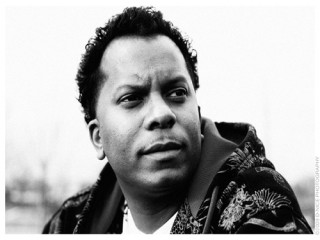
Special Ed biography
Date of birth : -
Date of death : -
Birthplace : Brooklyn, New York, U.S.
Nationality : American
Category : Arts and Entertainment
Last modified : 2011-11-10
Credited as : Singer, Youngest in Charge, Dolla Cab Lab
0 votes so far
Born Edward Archer to parents of Jamaican descent, Ed was the youngest of five boys and the only one born in the United States. His vibrant Flatbush neighborhood is sprinkled with West Indian and Jamaican influences that often find their way into Ed's music. He first started writing rhymes in public school and rapping followed soon after. "... School put me on to rapping, and vocabulary, you can't rap without a vocabulary. So throughout the years I gathered vocabulary, I learned [words] and I put it all to use," Ed told The Flavor, a prominent East Coast hip-hop journal.
Ed's big break would come through a meeting with respected hip-hop DJ and producer Howie Tee. One of Ed's cousins lived across the street from Tee and persuaded Ed to present his material at a club where the local star was spinning records. Tee liked Ed's style and took the 15-year-old into a studio to lay down some demo material, an unexpected outcome for Ed who held almost reverential feelings for the successful producer. He told The Flavor, "I was surprised 'cause I thought I was going to be wasting my time." After shopping the tape for several months, Profile offered Ed a contract and, with Howie Tee producing much of Youngest in Charge, his career rocketed.
Following the wildly successful Youngest in Charge, Special Ed's second album, Legal, was released in 1990. While Ed retained control over his material and its production, Profile executives took the lead in marketing the product. The record was graced by a GQ-ish photo of Ed dressed in colorful garb more typical of a shopping mall devotee than an innovator in hip-hop. Even with Profile's heavy marketing push, the record fell quickly from the charts, along with much of Ed's celebrity. Gangster and house rap emerged to become the dominant styles in the genre and Ed suffered through management disputes with his record company. As often happens in the music business, and rap in particular, the spotlight vanished just as suddenly as it arrived. Despite these setbacks, Special Ed had delivered several solid hits. "I Got It Made," from Youngest in Charge, achieved "classic" status in the hip-hop community and was covered by Shaquille O'Neal of the Orlando (Florida) Magic on the basketball star's 1994 foray into the recording business, Shaq Fu.
Not every day does a gold-selling performer undergo a four-year hiatus between records, raising the eyebrows of critics and fans alike. In response, Ed offered to reporter Chris Smith of the New York City scene-chronicler Paper, "For all those who had their doubts, it wasn't a music thing. It was a business thing." noted that Ed's "sophomore effort, Legal, was a bit of a disappointment, and after four years of silence, the self-proclaimed 'Youngest in Charge' was rerouted to the relic heap in the minds of many."
The down-time gave Ed the chance to reflect on his early career, and he reflected back on those days in an interview with Chris Wilder of The Source. "Back when I got my record deal, in the '80s, at the age I was, I would have took anything. I just wanted to hear myself on the radio," Ed explained. "But when I realized what I had got into I stepped back, looked at everything and was able to deal with the hand I had been dealt in a real way." Reportedly, Ed feuded with Profile's president over their management style while Profile chided Ed over a perceived lack of effort during his performances. The dispute was settled when Profile changed leadership, inviting Steve Plotnicki to run the show, much to Ed's delight.
After Legal, Special Ed's next musical appearance came on the soundtrack to Spike Lee's 1994 film Crooklyn. Fresh from that work, Ed began his next project: 1995's Revelations. On it, Special Ed continued his tradition of free-flowing rhymes but added heavier beats, staying current with changes in rap. On "Just a Killa," Ed combined his artful rhymes and unique meter with reggae's steady beat in a formula he has employed with some success throughout his career. The track was recorded in Kingston, Jamaica, with noted reggae/hip-hop artist Bounty Killer as well as DJ Akshun. On "Neva Go Back," Ed rejoined his long-time associate Howie Tee, who produced the song which became Revelations' first single. The video for "Neva Go Back" was directed by Omar Epps, whose movie credits include 1995's Higher Learning in addition to Juice.
In addition to his performing career, Special Ed owns and runs Dolla Cab Lab, a recording studio in Brooklyn. The studio's name comes from the alternative transportation network that spans through many of New York's boroughs. Though technically illegal, this system offers a choice to users of public transportation just as Ed's "Lab," as it is known, opens doors for local talent. The Lab reflects his ambition to remain close to his neighborhood while boosting his career, and to make music independent of interference from heavy-handed label executives. The studio makes use of a 32-track digital recording set-up and is frequented by talented young artists who look to Special Ed for not only creative guidance, but also business know-how.
With his 1994 album Revelations, Ed stepped back into the limelight, re-emerging as one of rap's most in-demand MCs. After suffering through the trials of a serious management dispute, Ed is now more astute in the business aspects of hip-hop. Never short of self-confidence, Special Ed told Black Beat's Cynthia Rivera, "I'm finally being appreciated in the way that I should be, 'cuz I work hard at this and deserve the praise."
















